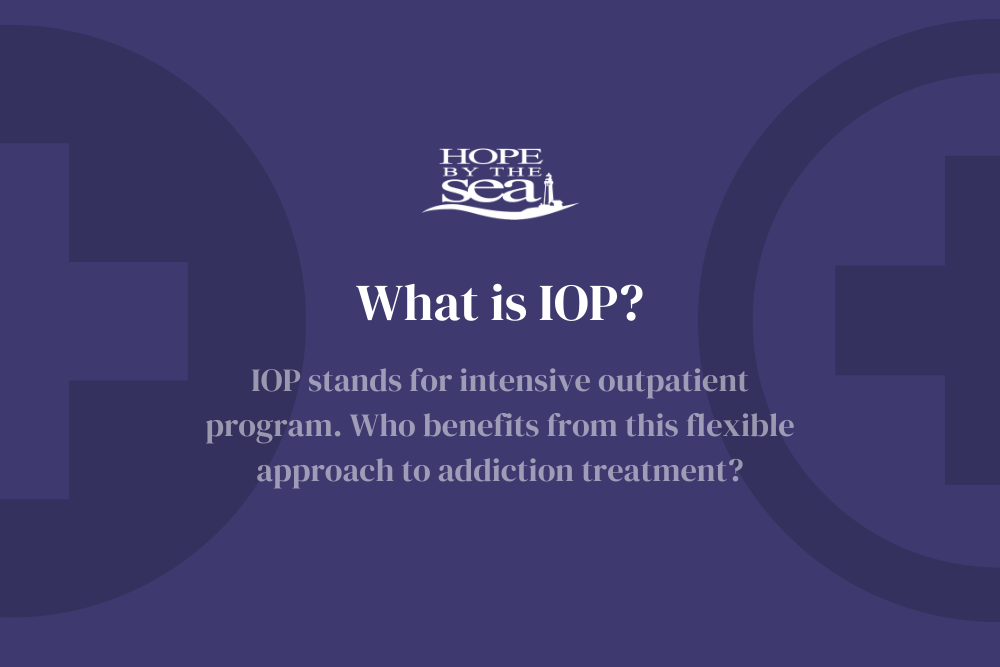Medical professionals have their own jargon like the pros in any field—a glossary of terms that the layperson seldom encounters, until you find yourself in need of that particular profession’s services.
If, for example, you’re researching treatment options for a family member who has agreed to get help for drug addiction, you may be confused during your initial review of treatment options. What exactly is “detox”? (Medically supervised withdrawal from dependence on a drug.) Is “inpatient care” or “residential care” a separate program from detox? (Yes: both terms refer to a post-detox therapy period of up to three months, during which a patient learns new coping skills for drug-free living, while staying at a supervised facility 24/7.)
The Basics of Outpatient Care
And what are “PHP” and “IOP”? They stand for, respectively, “Partial Hospitalization Program” and “Intensive Outpatient Program.” Both are forms of outpatient care, which, like inpatient care, arms a patient mentally and emotionally against temptations to resume drug use after returning to the larger world. Also like inpatient care, outpatient treatment is ongoing and intense, requiring the patient to be regularly available for several weeks or months of counseling.
What distinguishes outpatient care from inpatient is that outpatient participants live in their own homes rather than in supervised quarters, and report regularly to the treatment center for therapy sessions. In a sense, outpatient care is like commuting to a temporary job, with PHP the full-time version (typically 5–7 hours a day, 4–6 days a week) and IOP the part-time (2–6 hours a day, 3–5 days a week). Exact schedules, of course, vary by center and by individual patient needs.
What Is IOP?
IOP, the primary focus of this article, can be a good option for patients with outside responsibilities. However, it requires more patient initiative than inpatient treatment or even partial hospitalization. As anyone knows who’s ever tried to balance full-time work and long-term outside projects, it can be all too easy to skip “just one” session on a bad day, only to have “one time” morph into a habit, and a habit into dropping out.
So, before you sign up for IOP, consider carefully whether it’s the best choice for you.The following are not good reasons to choose IOP:
- You worry that you’ll get “left behind” if you miss too much work
- You’re impatient to “just get back to normal”
- You expect that after detox is over, everything will be easy (actually, there will still be old attitudes to unlearn, new habits to cultivate, and old problems to deal with).
However, IOP may be your best option if:
- You find your work and family life enjoyable and fulfilling
- You have an active support network, including everyone in your household, that provides dependable encouragement and accountability for staying on track
- You know definitely how you’ll handle the commute to in-person IOP appointments
- You have completed a residential or inpatient program
- Your therapist and support network agree that IOP is the best choice for you.
Making the Most of IOP
Once you’ve determined that intensive outpatient care is your personal best option:
- Stick faithfully to the appointment schedule, no matter how discouraged or busy you feel on any particular day.
- On days without scheduled appointments, touch bases with outside support partners to keep the accountability going.
- Eliminate overload to reduce stress. Keep non-IOP responsibilities to a minimum, and avoid taking on new commitments for several months.
- Take conscientious care of your physical health. The key ingredients are good sleep, healthy eating, exercise, and time for pure enjoyment.
- Inside and outside IOP sessions, stay focused on positive things—including the advantages of long-term sobriety.
- Remember, the fact that IOP was found a good fit for you is itself evidence that you are a strong, dependable person. Believe in yourself and keep affirming, “I can do this!”
IOP Treatment That Works
At Hope by the Sea, we understand that every life situation is unique and that not everyone can or should take a full “time-out” from everyday life to participate in long-term residential treatment. For those who have begun recovery from addiction and need to return to jobs and families, we offer individually customized IOP programs to ensure you continue to grow in skills and inner strength for ongoing sobriety. Contact us today to learn more. Hope Starts Here!
Recommended articles:
- “Relapse Prevention.” (PsychCentral.com)
- “Relapse Prevention and the Five Rules of Recovery.” (National Library of Medicine)
- “Substance Abuse: Clinical Issues in Intensive Outpatient Treatment: Chapter 3: Intensive Outpatient Treatment and the Continuum of Care.” (National Center for Biotechnology Information)
- “What to Expect from Drug and Alcohol Rehab Programs.” (VeryWellMind)

